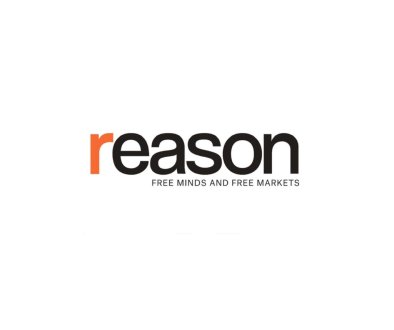A Runner Was Prosecuted for Unapproved Trail Use After the Referring Agency Called It ‘Overcriminalization’
When the federal government decided to prosecute mountain runner Michelino Sunseri for using an unapproved trail while setting a record for ascending and descending Grand Teton in September 2024, it seemed like a good example of a problem that President Donald Trump decried in an executive order last month: “overcriminalization in federal regulations.” The National Park Service (NPS) ultimately agreed, saying it was “withdrawing its criminal prosecution referral” after “further review” in light of the president’s order. But the Justice Department proceeded with the case anyway, resulting in a two-day bench trial that ended on May 21.
That disagreement, revealed in an email chain that Sunseri’s lawyers obtained through a Freedom of Information Act request, raises questions about whether prosecutors met their constitutional obligation to share information that would have been helpful to the defense. It also casts doubt on whether the Justice Department is complying with the policy described in Trump’s order, which said federal prosecutors should eschew charges involving regulatory crimes unless they have evidence indicating that the defendant knowingly violated the law.
That point always seemed doubtful in Sunseri’s case. For one thing, he publicized his route up and down Grand Teton with a map that he posted on social media. According to the NPS and the Justice Department, that map showed Sunseri had committed a federal misdemeanor punishable by up to six months in jail. And as WyoFile reporter Katie Klingsporn noted during Sunseri’s trial before U.S. Magistrate Judge Stephanie Hambrick in Jackson, Wyoming, the route that the NPS said he should not have taken, known as the “old climber’s trail,” is “a historic trail so well-used that it’s become a skinny singletrack.”
In fact, Cato Institute legal fellow Mike Fox noted in March, “record holders before Sunseri had used the same trail, and tour guides who charge hefty sums frequently lead hikers up the same route. Only two tiny and ambiguous signs inform the public that the trail is off-limits.”
One of those signs, at the top of the trail, said “shortcutting causes erosion.” The other sign, at the bottom of the trail, said “closed for regrowth.” Ed Bushnell, Sunseri’s defense attorney, argued that his client was not “shortcutting,” since he was using a long-established trail. Bushnell added that it was unclear whether the “closed” notice referred to the area around the sign or the trail beyond it. “There is no clear prohibition there,” Bushnell said. “This is not conspicuous signage.”
Given the evidence that Sunseri did not deliberately violate park rules, the criminal referral was puzzling and controversial. As is typical with regulatory crimes, his prosecution was based on the interaction between the Code of Federal Regulations—a body of law so vast and obscure that even experts can only guess at the number of criminal penalties it authorizes (at least 300,000, they think)—and a more general statute enacted by Congress.
Sunseri was charged with violating 36 CFR 21(b), which says a park superintendent “may restrict hiking or pedestrian use to a designated trail or walkway system.” It adds that “leaving a trail or walkway to shortcut between portions of the same trail or walkway, or to shortcut to an adjacent trail or walkway in violation of designated restrictions is prohibited.”
The regulation says nothing about criminal penalties, which are separately authorized by 16 USC 551. That law says violations of “rules and regulations” governing the use
Article from Reason.com

The Reason Magazine website is a go-to destination for libertarians seeking cogent analysis, investigative reporting, and thought-provoking commentary. Championing the principles of individual freedom, limited government, and free markets, the site offers a diverse range of articles, videos, and podcasts that challenge conventional wisdom and advocate for libertarian solutions. Whether you’re interested in politics, culture, or technology, Reason provides a unique lens that prioritizes liberty and rational discourse. It’s an essential resource for those who value critical thinking and nuanced debate in the pursuit of a freer society.



